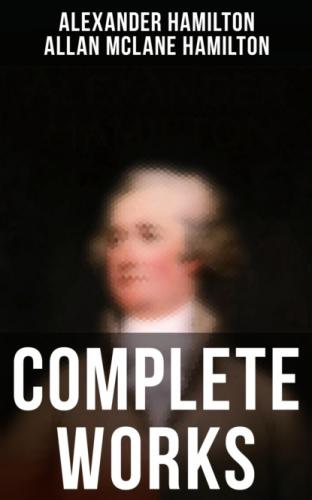Sir, I shall no further enlarge on this argument; my exertions have already exhausted me. I have persevered from an anxious desire to give the committee the most complete conception of this subject. I fear, however, that I have not been so successful as to bestow upon it that full and clear light of which it is susceptible. I shall conclude with a few remarks by way of an apology. I am apprehensive, sir, that, in the warmth of my feelings, I may have uttered expressions which were too vehement. If such has been my language it was from the habit of using strong phrases to express my ideas; and, above all, from the interesting nature of the subject. I have ever condemned those cold, unfeeling hearts, which no object can animate. I condemn those indifferent mortals, who either never form opinions, or never make them known. I confess, sir, that on no subject has my breast been filled with stronger emotions or more anxious concern. If any thing has escaped me, which may be construed into a personal reflection, I beg the gentlemen, once for all, to be assured that I have no design to wound the feelings of any one who is opposed to me. While I am making these observations, I cannot but take notice of some expressions which have fallen in the course of the debate. It has been said that ingenious men may say ingenious things, and that those who are interested in raising the few upon the ruins of the many, may give to every cause an appearance of justice. I know not whether these insinuations allude to the characters of any who are present, or to any of the reasonings of the House. I presume that the gentlemen would not ungenerously impute such motives to those who differ from themselves. I declare I know not any set of men who are to derive peculiar advantages from this Constitution. Were any permanent honors or emoluments to be secured to the families of those who have been active in this cause, there might be some grounds for suspicion. But what reasonable man, for the precarious enjoyment of rank and power, would establish a system which would reduce his nearest friends and his posterity to slavery and ruin? If the gentlemen reckon me amongst the obnoxious few, if they imagine that I contemplate with ambitious eye the immediate honors of the government, yet let them consider that I have my friends, my family, my children, to whom ties of nature and of habit have attached me. If, to-day, I am among the favored few, my children, to-morrow, may be among the oppressed; these dear pledges of my patriotism may, at a future day, be suffering the severe distresses to which my ambition has reduced them. The changes in the human condition are uncertain and frequent; many, on whom fortune has bestowed her favors, may trace their family to a more unprosperous station; and many, who are now in obscurity, may look back upon the affluence and exalted rank of their ancestors. But I will no longer trespass on your indulgence. I have troubled the committee with these observations, to show that it cannot be the wish of any reasonable man to establish a government unfriendly to the liberties of the people. Gentlemen ought not, then, to presume that the advocates of this Constitution are influenced by ambitious views. The suspicion, sir, is unjust; the charge is uncharitable. —Elliot's Debates, ii.
BRIEF OF ARGUMENT ON THE CONSTITUTION OF THE UNITED STATES
1788
1 A republic, a word used in various senses. Has been applied to aristocracies and monarchies.To Rome, under the kings.To Sparta, though a Senate for life.To Carthage, though the same.To United Netherlands, though Stadtholder, hereditary nobles.To Poland, though aristocracy and monarchy.To Great Britain, though monarchy, etc.Again, great confusion about the words democracy, aristocracy, monarchy.a. Democracy defined by some, Rousseau, etc., a government exercised by the collective body of the people. b. Delegation of their power has been made the criterion of aristocracy.Aristocracy has been used to designate governments.Where an independent few possessed sovereignty.Where the representatives of the people possessed it.Monarchy, where sovereignty in the hands of a single man. General idea—Independent in his situation; in any other sense would apply to State of New York.Democracy in my sense, where the whole power of the government in the people.Whether exercised by themselves, orBy their representatives, chosen by them either mediately or immediately and legally accountable to them.Aristocracy, where whole sovereignty is permanently in the hands of a few for life or hereditary.Monarchy, where the whole sovereignty is in the hands of one man for life or hereditary.Mixed government, where these three principles unite.
2 Consequence, the proposed government a representative democracy.House of Representatives directly chosen by the people for two years.Senate indirectly chosen by them for six years.President indirectly chosen by them for four years. Thus legislative and executive representatives of the people.Judicial power, representatives of the people indirectly chosen during good behavior.All officers indirect choice of the people. Constitution revocable and alterable by the people.
3 This representative democracy as far as is consistent with its genius has all the features of good government. These features are:An immediate and operative representation of the people, which is found in the House of Representatives.Stability and wisdom, which is found in the Senate.A vigorous executive, which is found in the President.An independent judicial, which is found in the Supreme Court, etc. A separation of the essential powers of government. Ascertain the sense of the maxim:One department must not wholly possess the powers of another. =Montesquieu. = British Government.Departments of power must be separated, yet so as to check each other.Legislative.Legislative
